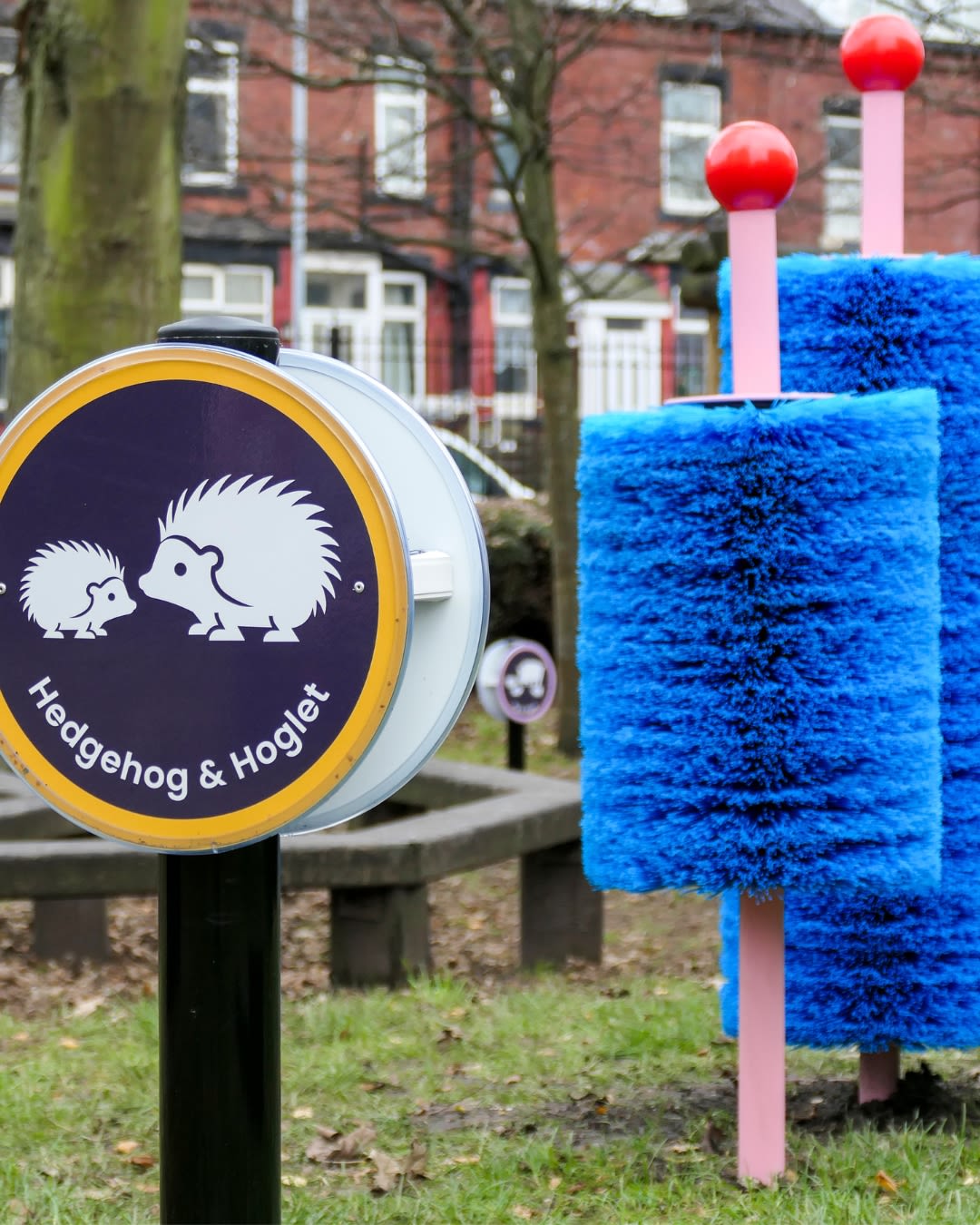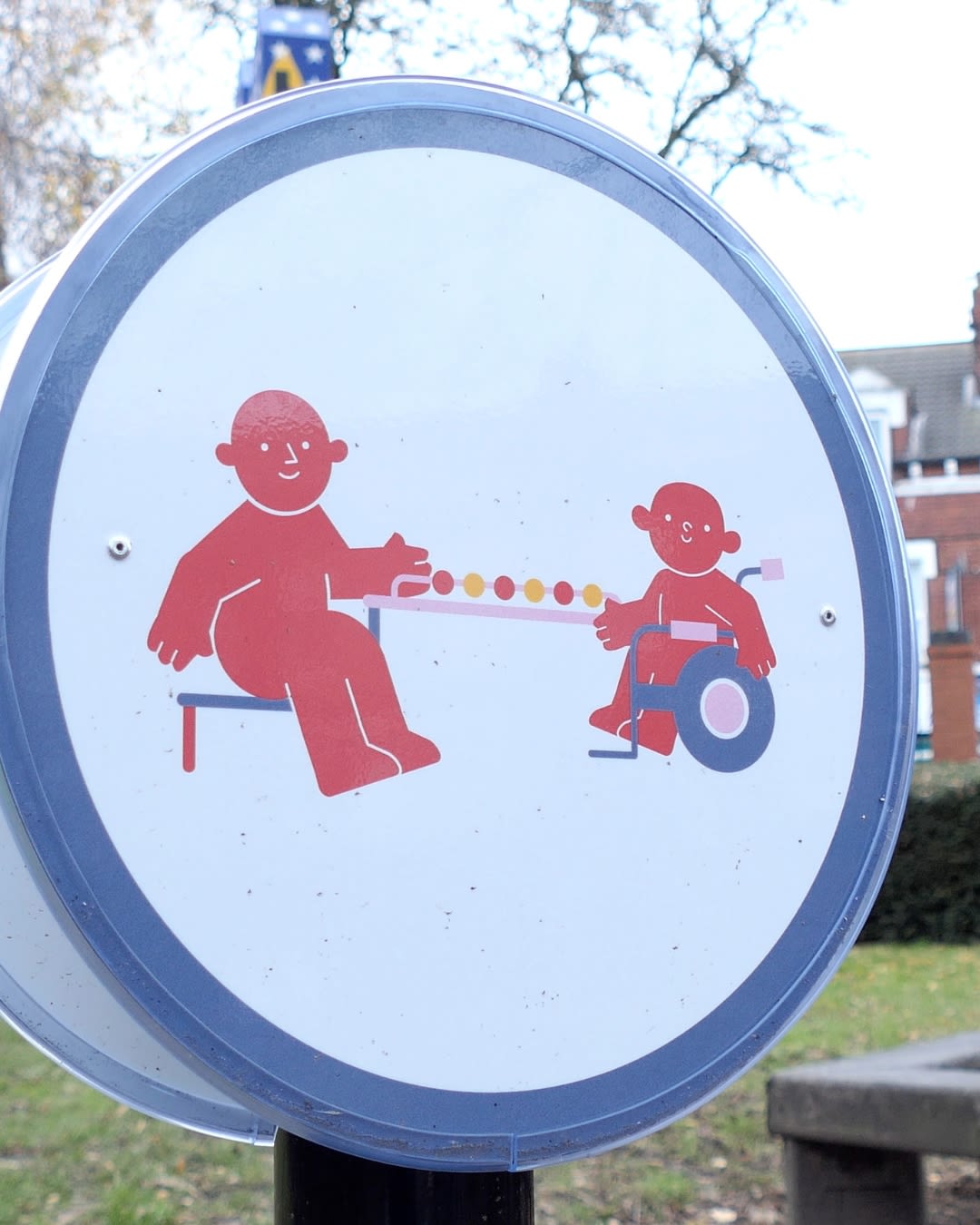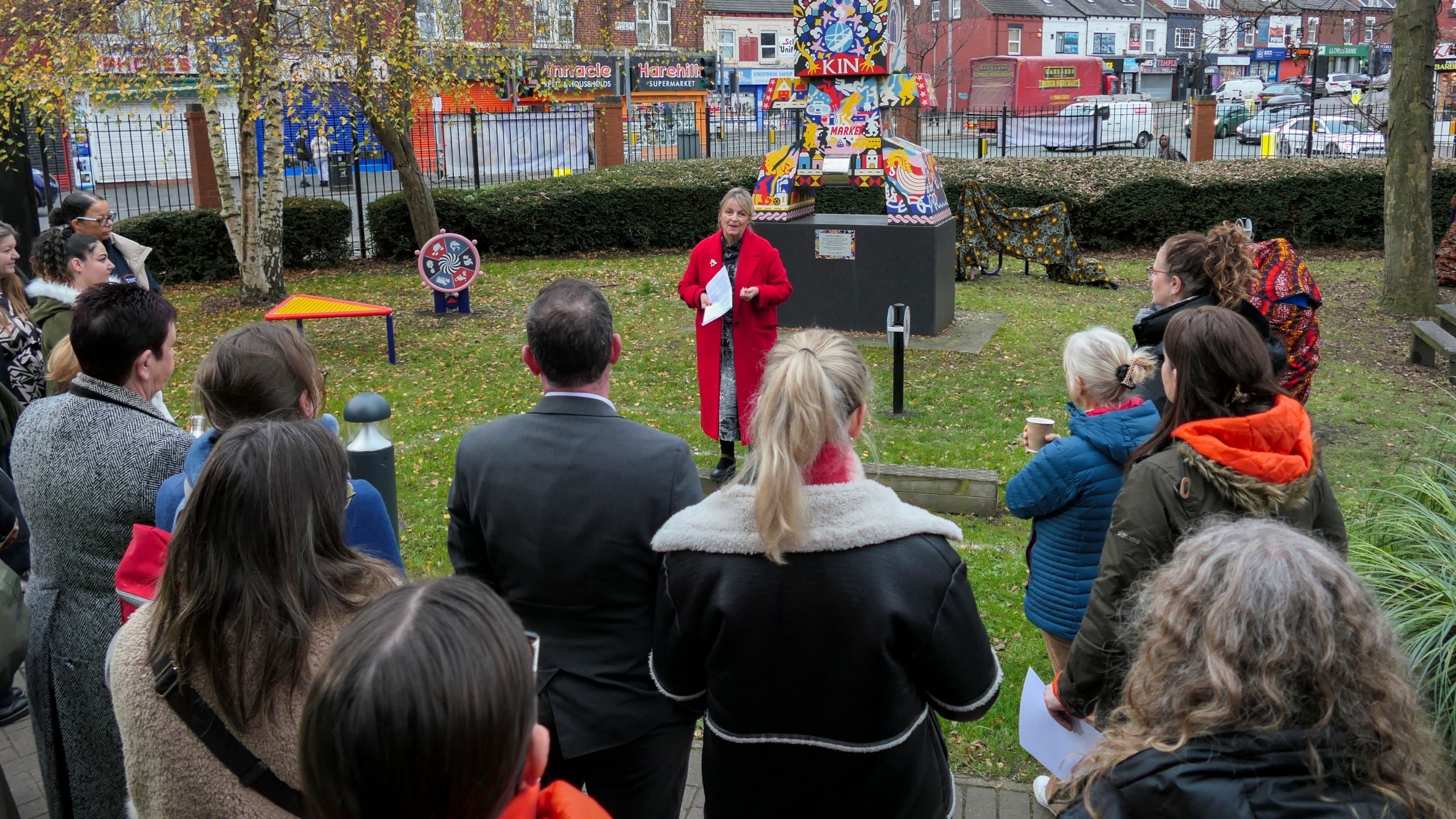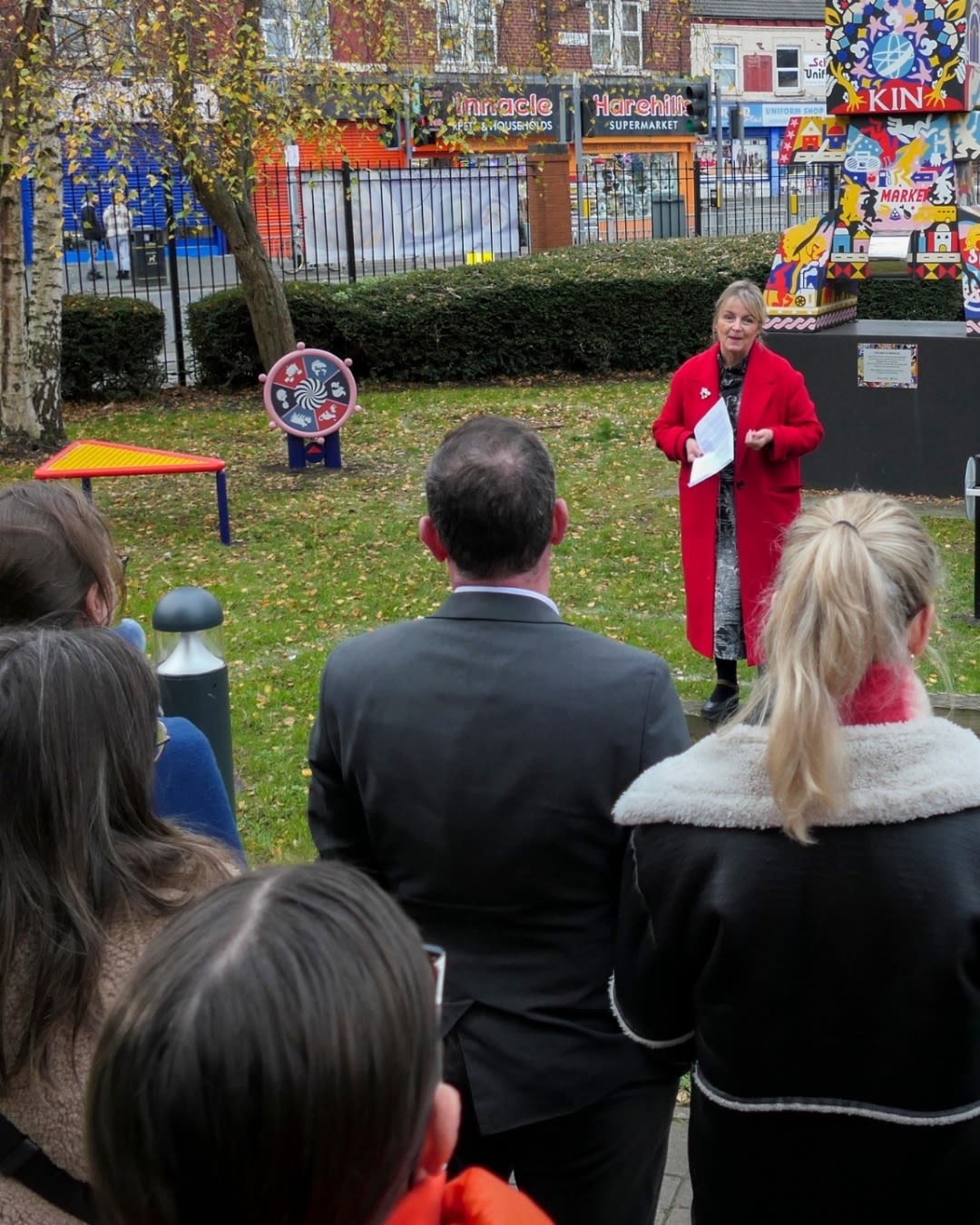A Fairer Start Local
A case study

A Fairer Start Local
A case study
At a glance
In 2021, we launched a Fairer Start Local: a £1.5 million programme that established innovation partnerships with three local authorities – Leeds City Council, Stockport Metropolitan Borough (in partnership with GMCA), and City of York Council.
Through our three year partnership, we delivered 18 innovation projects which addressed needs identified by council officers and aligned with Nesta’s mission goal to break the link between family background and life chances.
The final year of the programme saw each local authority implement a substantial innovation; playful learning installations in Leeds, an enhanced integrated maternity pathway in Stockport and an early years data tool in York.
The challenge
For many children growing up in the UK, family background continues to be one of the biggest factors contributing to their life chances. Despite this, the systems designed to support families often struggle to reach those who need help the most. Local councils, responsible for these services, are often overstretched and struggle with the capacity to develop new, innovative approaches that might be more successful in connecting families with the right kind of support. A new model was needed to respond directly to the needs of local families and to break the link between socioeconomic background and a child's future.
The challenge
For many children growing up in the UK, family background continues to be one of the biggest factors contributing to their life chances. Despite this, the systems designed to support families often struggle to reach those who need help the most. Local councils, responsible for these services, are often overstretched and struggle with the capacity to develop new, innovative approaches that might be more successful in connecting families with the right kind of support. A new model was needed to respond directly to the needs of local families and to break the link between socioeconomic background and a child's future.
"Working on this project opened my eyes to the depth of local expertise and commitment to improving outcomes for children held by our local authority partners. When we combined those strengths with Nesta’s capabilities, from arts and service design through to data science and behavioural insights, we had a genuine partnership where the whole was greater than the sum of its parts. I’m really proud of the work we did together and the impact that it has for children and families.”
Tim Shakespeare, Senior Analyst at Nesta
What we did
Nesta responded by launching a Fairer Start Local, a £1.5 million initiative to forge innovation partnerships with three local authorities: Leeds City Council, Stockport Metropolitan Borough (in partnership with GMCA), and City of York Council. Our approach was to act as an independent partner, providing a multidisciplinary innovation team, a structured 'test and learn' methodology, and dedicated funding so each council could focus on finding solutions to the particular challenges they were experiencing in their local areas.
Together, we delivered 18 innovation projects to address the specific needs identified by council officers and families. The final year of the programme saw each local authority implement a substantial innovation; playful learning installations in Leeds, an enhanced integrated maternity pathway in Stockport and an early years data tool in York.
What we did
Nesta responded by launching a Fairer Start Local, a £1.5 million initiative to forge innovation partnerships with three local authorities: Leeds City Council, Stockport Metropolitan Borough (in partnership with GMCA), and City of York Council. Our approach was to act as an independent partner, providing a multidisciplinary innovation team, a structured 'test and learn' methodology, and dedicated funding so each council could focus on finding solutions to the particular challenges they were experiencing in their local areas.
Together, we delivered 18 innovation projects to address the specific needs identified by council officers and families. The final year of the programme saw each local authority implement a substantial innovation; playful learning installations in Leeds, an enhanced integrated maternity pathway in Stockport and an early years data tool in York.
The impact
This partnership demonstrated five tangible examples of how innovation can measurably improve early years support.
In York, using behavioural insights increased the take-up of the council’s two-year health review from 73% to over 80%. In Stockport, a renewed focus on collaboration between health visitors and midwives in the antenatal period led to a 45% increase in health visitor antenatal assessments.
Ultimately, we helped our partners build more trusted and family-centred support, while simultaneously sparking a culture of innovation within their councils. Projects from the final year of the programme included a new data tool in York, playful learning installations in Leeds, and an enhanced maternity pathway in Stockport, all providing a clear pathway towards building scalable, evidence-led solutions that empower local families.
What we learnt
The programme provided a wealth of practical learnings on how to innovate effectively within the early years sector. We found that a 'test and learn' approach, where ideas are trialled on a small scale and adapted based on real-world feedback, was crucial. Successful innovation also requires dedicated capacity within local government and a commitment to co-designing solutions with both parents and frontline practitioners. We discovered that while there is no shortage of early years data, the key challenge lies in joining it up effectively. The programme demonstrated that bringing diverse teams together behind a common mission can drive collaboration and help navigate systemic hurdles.






Adopt a ‘test and learn’ approach
Foster an experimental culture, testing ideas on a small scale and using real-world feedback and data to guide improvements.
In Stockport we used a test and learn approach to develop the council’s integrated enhanced maternity pathway, starting with a joint visit prototype that was iteratively refined through co-design, testing and feedback. This helped the team design a solution that survived contact with reality and reflected the needs of families and professionals.
Invest in local expertise
Local leaders were essential to navigate complex systems, bring partners together, and drive work forward, supported by our specialist knowledge in innovation methods.
Co-design with parents and practitioners
Use ethnographic, design and arts-based methods to engage families and frontline staff to ensure solutions are rooted in lived and professional experience.
We supported colleagues in York to adopt a user-centred design process. Together we gathered rich insights about the challenges that young parents faced and co-designed new ways of supporting parent-child interactions that help language development. The product concept developed from this work would not have been imagined without this input.
There’s no shortage of early years data – joining it up is the challenge
Fragmented data, data-sharing barriers, and limited expertise hindered the effective use of data, but by focusing on existing and accessible data, early years teams gained valuable insights and improved its use.
In Leeds, analysing data held by library services revealed opportunities to expand and better target routes for the Story Bus – a mobile library service for families with young children. As a result, library usage has increased, and staff now feel more confident using data to inform decisions.
Focus on a common goal
By bringing professionals together behind a clear mission goal, we fostered strong collaboration and teamwork, which help to navigate challenges and strengthened engagement across the system.
Scale starts with a solution that works in place
This project highlighted the challenges of achieving impact at scale whilst responding to the specific needs of local places. We found that taking an ‘adapt and adopt’ approach was helpful. It’s important to identify which elements of a solution that must be delivered as designed, and where there’s flexibility for local teams to tailor the approach to their specific context.






Adopt a ‘test and learn’ approach
Foster an experimental culture, testing ideas on a small scale and using real-world feedback and data to guide improvements.
In Stockport we used a test and learn approach to develop the council’s integrated enhanced maternity pathway, starting with a joint visit prototype that was iteratively refined through co-design, testing and feedback. This helped the team design a solution that survived contact with reality and reflected the needs of families and professionals.
Invest in local expertise
Local leaders were essential to navigate complex systems, bring partners together, and drive work forward, supported by our specialist knowledge in innovation methods.
Co-design with parents and practitioners
Use ethnographic, design and arts-based methods to engage families and frontline staff to ensure solutions are rooted in lived and professional experience.
We supported colleagues in York to adopt a user-centred design process. Together we gathered rich insights about the challenges that young parents faced and co-designed new ways of supporting parent-child interactions that help language development. The product concept developed from this work would not have been imagined without this input.
There’s no shortage of early years data – joining it up is the challenge
Fragmented data, data-sharing barriers, and limited expertise hindered the effective use of data, but by focusing on existing and accessible data, early years teams gained valuable insights and improved its use.
In Leeds, analysing data held by library services revealed opportunities to expand and better target routes for the Story Bus – a mobile library service for families with young children. As a result, library usage has increased, and staff now feel more confident using data to inform decisions.
Focus on a common goal
By bringing professionals together behind a clear mission goal, we fostered strong collaboration and teamwork, which help to navigate challenges and strengthened engagement across the system.
Scale starts with a solution that works in place
This project highlighted the challenges of achieving impact at scale whilst responding to the specific needs of local places. We found that taking an ‘adapt and adopt’ approach was helpful. It’s important to identify which elements of a solution that must be delivered as designed, and where there’s flexibility for local teams to tailor the approach to their specific context.






